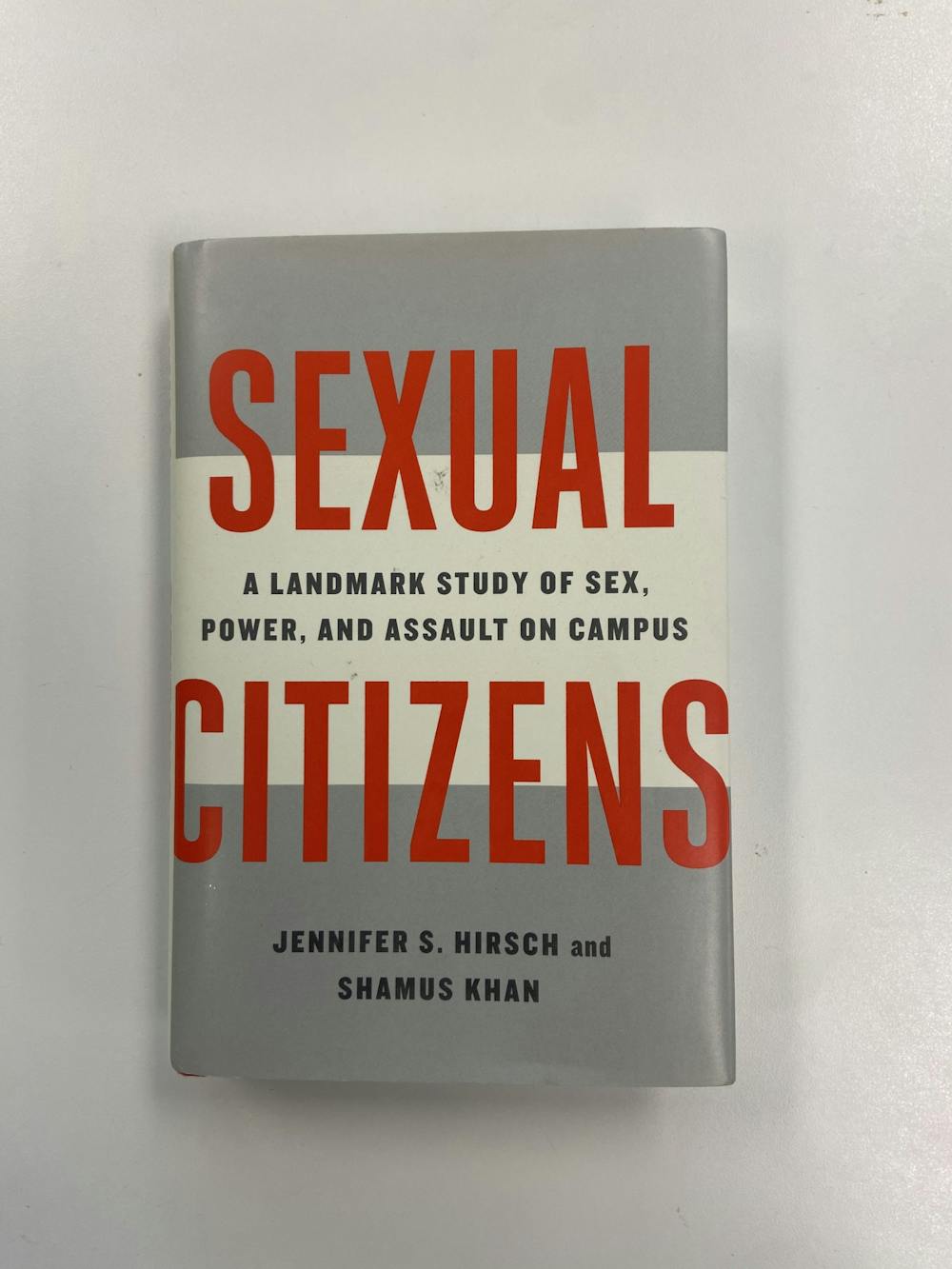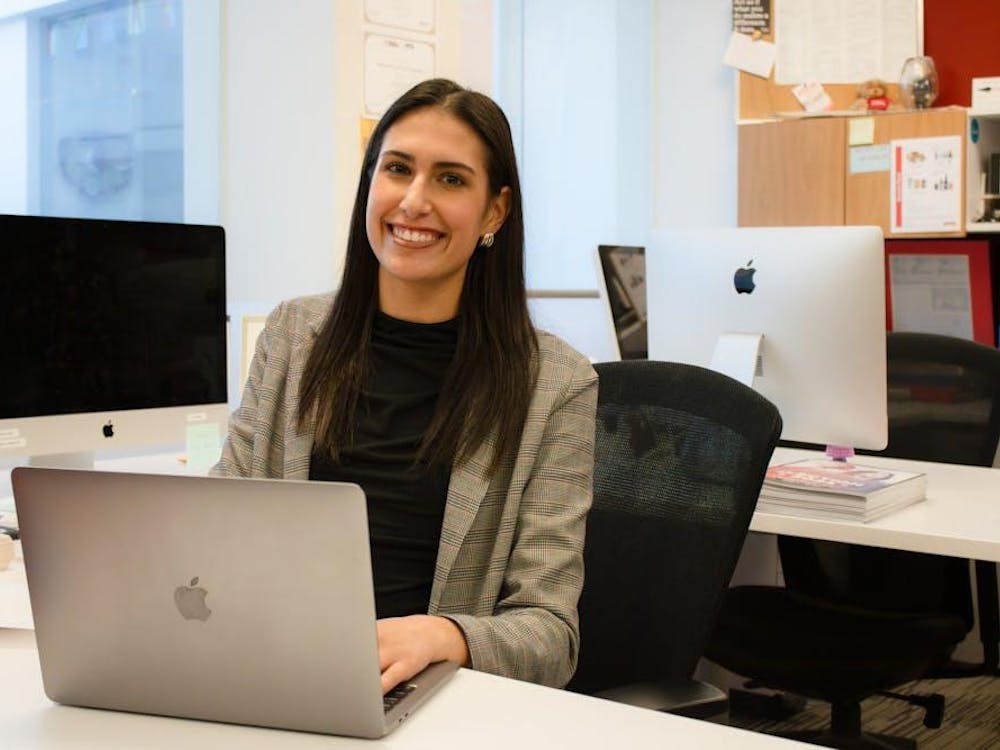Jennifer Hirsch and Shamus Khan, authors of “Sexual Citizens,” a book about sexual assault on college campuses, spoke to about 160 Miami University students, faculty and staff members on Thursday, April 15.
The book draws on ethnographic research from the Sexual Health Initiative to Foster Transformation (SHIFT) at Columbia University, which examined sexual assault and sexual health among undergraduates. Hirsch co-directed SHIFT, and Hirsch and Khan co-directed SHIFT’s ethnographic component.
Hirsch and Khan cover three concepts in the book: sexual projects, sexual geographies and sexual citizenship and how they relate to college students.
Their talk focused on the content of their book, which some audience members had previously read. “Sexual Citizens” looks at the social roots of sexual assault rather than individual perpetrators. This new lens of looking at sexual assault mirrors that of a public health approach.
“So much of campus sexual assault [prevention] is about what do we do after it happens,” Khan said, “and the approach to our project was, ‘What if we thought about this differently, and what if we thought about how we can design communities that prevented it from happening in the first place?’”
Hirsch and Khan wanted to write a book accessible to everyone, including college students, high school students going into college, their parents and legislators who make decisions about sexual assault prevention.
“Jennifer and I didn’t want to just communicate with the academic community,” Khan said. “We also wanted to communicate with a much broader community … because we think this is such a massive problem, and there’s a lot of unnecessary suffering that is going on.”
The fall 2019 semester at Miami saw 40 reports of sexual assault, a steep increase from the 2018-2019 school year.
Hirsch said the main message she hopes readers take away from “Sexual Citizens” is sexual assaults on college campuses are preventable, but it will require work.
“We can prevent campus sexual assault if we take a new approach,” Hirsch said, “But it’s not going to be one intervention.”
During the Q&A portion of their lecture, Hirsch and Khan discussed what some of these prevention methods might look like, including comprehensive sex education and distributing power and control over spaces on campuses.
Currently, incoming first-years are required to complete an online module about sexual assault before coming to campus. Students also receive presentations on sexual assault at orientation and another presentation during their first semester.
Enjoy what you're reading?
Signup for our newsletter
Sam Shellenberg, a senior psychology major, attended the lecture for her Family Life and Sexual Education class. She hadn’t read the book beforehand but still enjoyed listening to the authors speak.
“Even though I didn’t read the book, I’m glad [the issues they were talking about] could still be applicable to me,” Shellenberg said. “I thought the issues they were talking about are things that need to be talked about more in general, but ... specifically I think it needs to be talked about with college students.”
Leora Bernard, a senior public administration and film studies double major, first heard Hirsch speak in her AMS 310 class last semester, titled “#MeToo: A Cultural History.” The class chronicled the #MeToo movement against rape and sexual assault throughout American history.
Bernard decided to read “Sexual Citizens” and was excited for the talk.
“I joked that it was like my bible for two months,” Bernard said. “I gained a lot from the book from thinking about the book and conversations I was having with people because of it. I convinced like 10 of my friends to buy it and start reading it.”
During the talk, Hirsch and Khan spoke about their research and key concepts in their book. The last thirty minutes were reserved for audience questions.
“I thought the talk reflected the quality of the book,” Bernard said. “The talk also acknowledged the shortcomings of the text where they probably could have spent more time or devoted things or answered certain things that they just didn’t have the time for. It was really amazing to see that reflection.”
Hirsch and Khan were pleased when students asked questions they couldn’t necessarily answer based on their research.
“I would say the dream of a researcher like me and Jennifer is that students look at this and they’re like, ‘This is helpful, but it doesn’t go far enough,’” Khan said. “And what you’ll do then is you’ll build upon it.”
Hirsch and Khan encouraged Miami students to think about sexual assault in a different way in order to take action on prevention methods and also to think about what still needs to be done.
“In ‘Sexual Citizens,’ we write about the stories that students told us, holding them, not just with empathy and compassion,” Hirsch said, “but ultimately … with a great deal of hope that this broader way of thinking about the social roots of sexual assault can help us finally make progress on what’s been such an intractable problem.”




